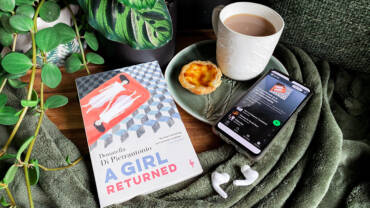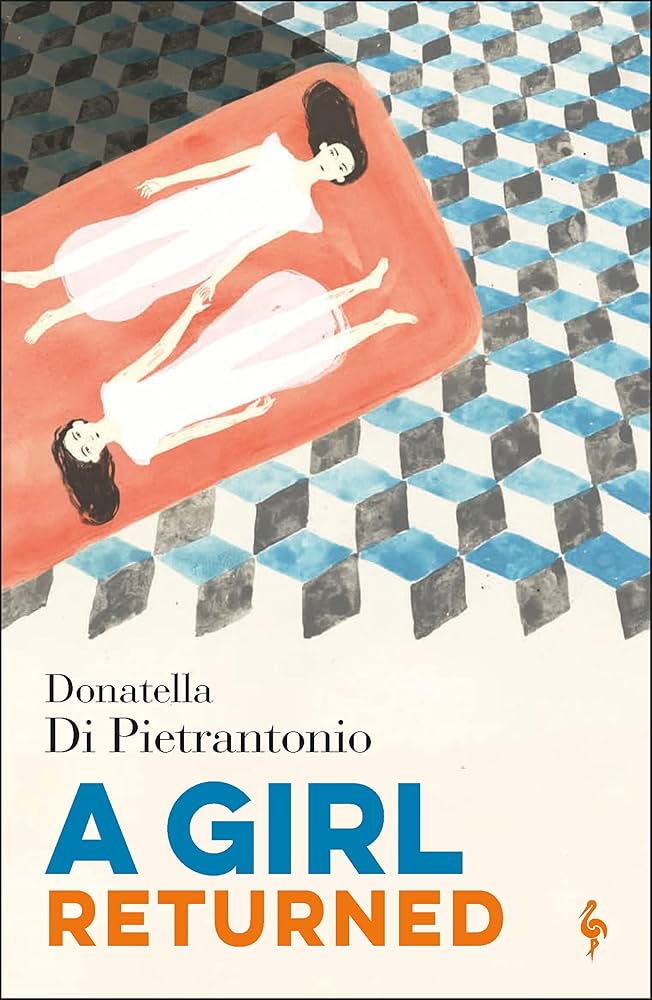
A Girl Returned is a devastating and raw exploration of abandonment, identity, and the fragile bonds that both wound and heal.
Trigger Warnings: Incest, familial abuse, death, body-shaming
First Impressions & Expectations
A Girl Returned was recommended to me. I had never heard of it before, and I always love a challenge of something new. Some of my most favourite books have been ones that have been recommended. I went into it somewhat blind, but very curious as I, myself, am adopted, and so thought I would find some relatable narrative. I was both right and very, very wrong. A Girl Returned is devastating. It encompasses the feelings of rejection and abandonment many adoptees feel, whilst being very adaptable to the situation through a dedication to education and through sisterhood. This isn’t a book you simply read, it’s a book that lingers, gnaws and unsettles.
Raw Emotions & Abandonment
Donatella Di Pietrantonio’s depiction of the emotional tearing and pain our protagonist experienced is brutally honest and raw in its confusion, hurt and longing. When our protagonist is handed over to her birth family, they were people she didn’t know. Neither was she aware that the parents who raised her weren’t her real parents. She was thrown into a very different world to the one she was raised in, adding to her isolation and alienation.
Class, Poverty & Family Ties
‘I wasn’t acquainted with hunger and I lived like a foreigner among the hungry. The privilege I bore from my earlier life distinguished me, isolated me in the family. I was the arminuta, the one who’d returned … I no longer knew who I belonged to.’
A Girl Returned is a story of class, poverty, loss and emotional confusions. The novel does touch on the controversial subject of incest as the author explores teenage emotions of our protagonist and her brother. For me, this was not overly problematic as it was depicted in a careful manner between two teenagers who did not know each other as brother and sister – however, some may find this uncomfortable and/or triggering. This arc is a very small part of the novel and was not fixated on. My main criticism of this arc is there didn’t seem to be a resolution or point – no conclusion, and thus, to me a pointless element. Nor did I feel this added anything to the narrative, and therefore could have been omitted with no consequences.
‘…today I really don’t know what place a mother is. It’s absent from my life the way good health, shelter, certainly can be absent. It’s an enduring emptiness, which I know but can’t get past.’
A Whisper of Superstition
A clever, and easy to miss detail, is that of ‘the mother’ and ‘my mother’ and ‘our mother’. I won’t reveal more, and let you, as a potential reader, discover this ingenious little element the goes on the journey with our protagonist. Similarly, there are some beautifully interwoven superstitions which I would have loved to have seen developed and made more use of – though perhaps the whisper of superstition is what is alluring about them.
‘They told me later that she had died once and remained dead for several days, but she couldn’t bear the solitude and had returned.’
Di Pietrantonio distinguishes the working-class and the middle-class through the representations of poverty, but also physical abuse towards the children by the parents, which I found a little bit stereotypical. Yet, she also created a beautiful resilient and mostly kind protagonist, who demonstrated her ability to adapt and tolerate the intolerable. There is a realism about her feelings towards the variety of circumstances she is faced with: the sudden abandonment, the physical violence, loss, confusion, resentment, and acceptance. Her innocence and resilience were an asset but also a trait nurtured by the family who raised her.
A Disjointed Note: Body-Shaming Bias
Our protagonist is fundamentally a kind and considerate child, but when it comes to her descriptions of plus sized individuals the imagery used is derogatory and somewhat grotesque. For me, I have no issues with characters displaying racism, sexism, agism etc, on the condition it is character driven and significant to the narrative. However, the representation of plus sized individuals felt external and disjointed from our protagonist – an author bias perhaps – and therefore, I could not move passed it. One description is passable, but this was a repeated perception described intermittently throughout.
‘Sandra had broken a leg, without falling: I imagined the crack of bone under her weight.’
Representation & Inclusivity Check
Therefore, for me, this was the most disappointing read of Women in Translation month. It is not a book I’d mark as a safe and inclusive read. It had great potentially, and in theory a beautiful story, remarkably written, with a wonderful translation by Ann Goldstein. The scenes depicted in a visually eloquent way. If you don’t mind body-shaming descriptors or the incest narrative, then this book has the ability to be a high-star read.
A Girl Returned Playlist Companion
I am a music lover, and I can’t read without something in the background to set the mood, so here, I have collated 10 tracks to represent our protagonist’s journey through abandonment, emotional confusion, deception, and acceptance.
Disorientation & Longing
- Radiohead – How to Disappear Completely
Ethereal and haunting, evoking the feeling of being untethered. - London Grammar – Wasting My Young Years
A bittersweet reflection on lost time and fragile youth.
Unease & Shadows
- Carmen Consoli – Statte Zitta
Raw and defiant, carrying an undercurrent of tension. - PJ Harvey – Down by the Water
Dark, unsettling, and drenched in atmosphere.
Tenderness & Fragile Bonds
- Elisa – Luce (Tramonti a Nord Est)
Luminous and delicate, a song of hope shining through. - Jeff Buckley – Lover, You Should’ve Come Over
Longing, grief, and yearning all entwined in a single voice.
Weight & Reckoning
- Afterhours – Quello Che Non C’è
Stark and melancholic, brimming with intensity. - Portishead – Roads
Heavy and atmospheric, a soundtrack for confronting shadows.
Acceptance & Calm
- Carmen Consoli – L’Ultimo Bacio
A wistful, melancholic farewell. - Agnes Obel – Riverside
Gentle, haunting beauty with a sense of surrender and peace.

Title: A Girl Returned
Author: Donatella Di Pierantonio
Translator: Ann Goldstein
Genre: Literary Fiction
Publisher: Europa Editions
Edition Publication Date: 2020
Buy on Amazon UK
Buy from Bookshop.org
NB. Some links on the page are affiliate links. If used, they do not cost you anything, but helps out Books the Word.
